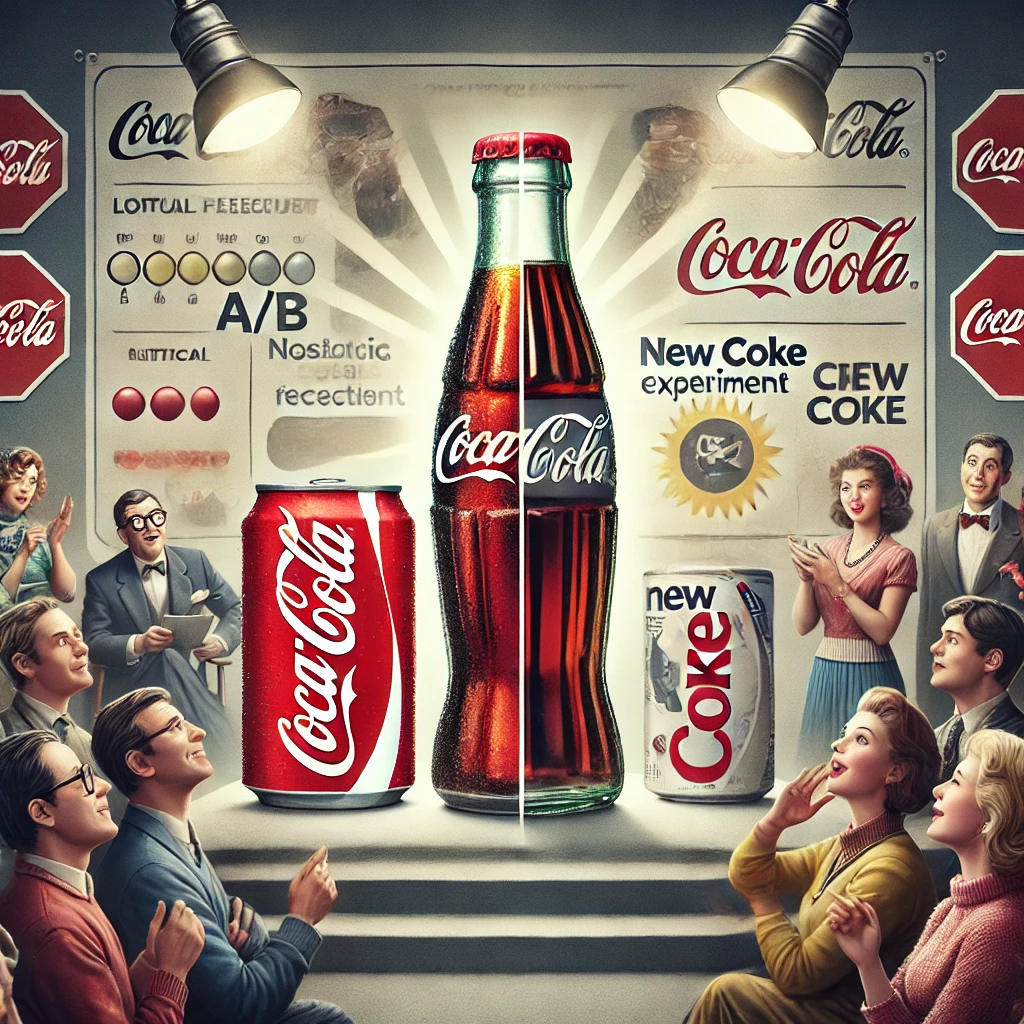The Pitfalls of Blindly Implementing A/B Testing Results: Lessons from Coca-Cola's Failed New Coke Experiment
The content discusses the cautionary tale of Coca-Cola's New Coke experiment in the 1980s, which serves as a warning against blindly implementing A/B testing results without a holistic understanding of the product and its role in consumers' lives.
Coca-Cola faced increasing competition from Pepsi and decided to reformulate its flagship product to create a sweeter version called "New Coke." Before launching the new product, Coca-Cola conducted extensive market research and taste tests, which overwhelmingly indicated that consumers preferred the taste of New Coke over the original formula and Pepsi.
Swayed by these positive results, Coca-Cola made the bold decision to replace its original formula with New Coke. However, the company soon faced a significant backlash from loyal customers. While New Coke had performed well in controlled taste tests, the real-world experience was very different. Consumers who drank larger quantities of New Coke found it overly sweet, to the point where it became unpalatable.
This response revealed a critical flaw in the testing process: the A/B tests had focused on short-term taste preferences without considering how consumers would feel about the product when consumed regularly or in the long term. The backlash was so severe that Coca-Cola had to reintroduce the original formula under the name "Coca-Cola Classic" just a few months after New Coke's launch.
The failure of New Coke illustrates the limitations of A/B testing when it is implemented without a holistic understanding of the product and its role in consumers' lives. The test results were accurate in predicting a short-term preference, but they failed to capture the emotional and habitual attachment that consumers had to the original product.
The content emphasizes the importance of balancing data-driven decision-making with vision and intuition. A/B testing is a valuable tool, but it should not be the sole determinant of strategic decisions. Companies should consider the broader context, including consumer habits, brand identity, and potential long-term reactions, which may not be fully captured in controlled or short-term test experiments.
Personalizar Resumo
Reescrever com IA
Gerar Citações
Traduzir Texto Original
Para Outro Idioma
Gerar Mapa Mental
do conteúdo original
Visitar Fonte
medium.com
Effects of Blindly Implementing A/B Testing Results: Lessons from Coca-Cola’s New Coke Experiment
Principais Insights Extraídos De
by Bilal Arshad às medium.com 08-12-2024
https://medium.com/@MohdBilalArshad/effects-of-blindly-implementing-a-b-testing-results-lessons-from-coca-colas-new-coke-experiment-ed9ffc2764bd
Perguntas Mais Profundas
